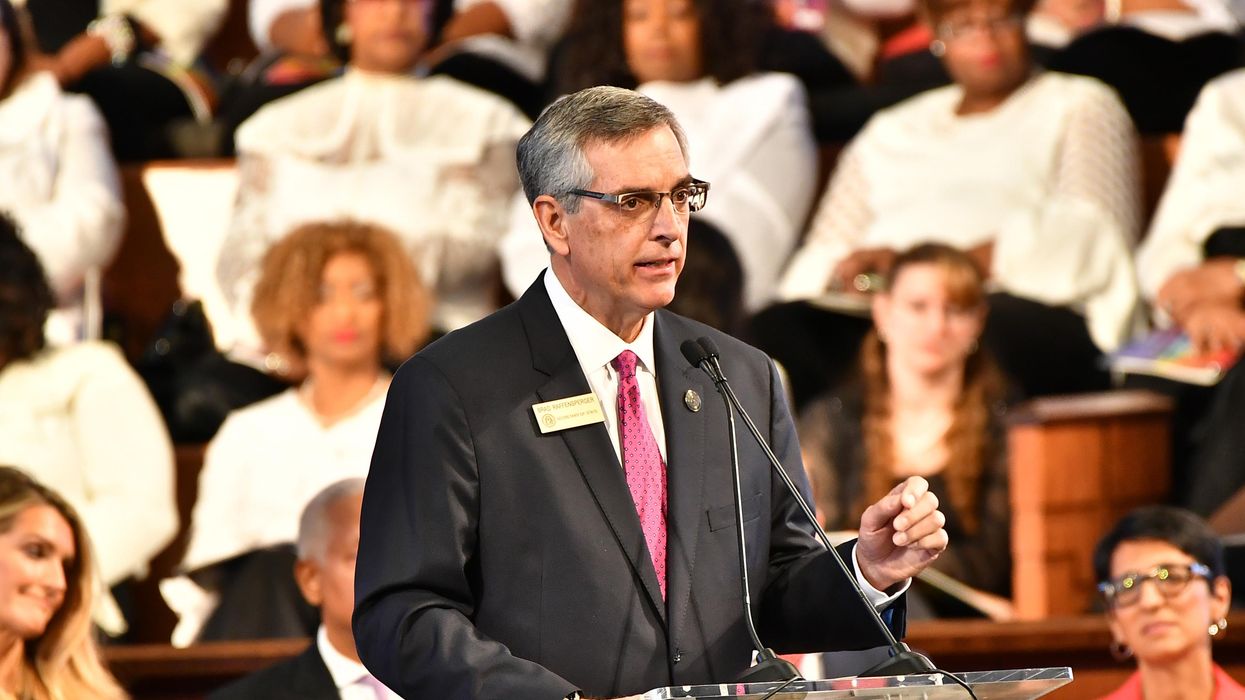The office of Georgia's secretary of state has launched the first known investigation of former President Donald Trump for potentially committing a state election crime.
The announcement revives the question of whether Trump broke the law when he telephoned Secretary of State Brad Raffensperger and asked him to "find" enough votes to reverse his loss of the state.
That incident dominated the nation's attention for only a few days — until the mob invasion of the Capitol, which has led to the Senate impeachment trial that opened Tuesday afternoon, on the even more astonishing charge that a sitting president had incited an insurrection.
A spokesman for Raffensperger, Walter Jones, said Monday that the office was acting as required in response to a formal complaint. "The investigations are fact-finding and administrative in nature. Any further legal efforts will be left to the attorney general," he said.
The usual intermediate step in Georgia is for the secretary of state to refer any findings to the Republican-controlled State Election Board, which may dismiss cases, levy fines or refer cases to the attorney general's office for potential prosecution. There is no deadline, and there's no chance the board will take action when it meets Wednesday.
Fani Willis, the Democratic district attorney of Fulton County (which covers much of Atlanta), has signaled she is weighing whether to begin a separate criminal inquiry.
The Jan. 2 call was one of several attempts by Trump to persuade top Republican officials to locate sufficient instances or even allegations of voting fraud to reverse or at least cast doubt on his 12,000-vote defeat in Georgia. That margin was certified after three different statewide tallies, and both Raffensperger and Gov. Brian Kemp said they were confident the results were clean.
On the call, Raffensperger told Trump the "data you have is wrong" as he rebutted the president's false claims that he had won Georgia's 16 electoral votes and kept alive a winning streak for the GOP nominee begun in 1996.
The complaint that prompted the preliminary criminal inquiry was filed by George Washington University law professor John Banzhaf III.
Trump's vigorous effort to reverse the outcome in Georgia — which he did not match anywhere else, and which even if successful would still have put him well short of a second term — may have violated at least three of the state's statutes. Criminal solicitation to commit election fraud and conspiracy to commit an election crime can both be prosecuted as felonies, while it is a misdemeanor to commit "intentional interference" with another's "performance of election duties."




















Trump & Hegseth gave Mark Kelly a huge 2028 gift